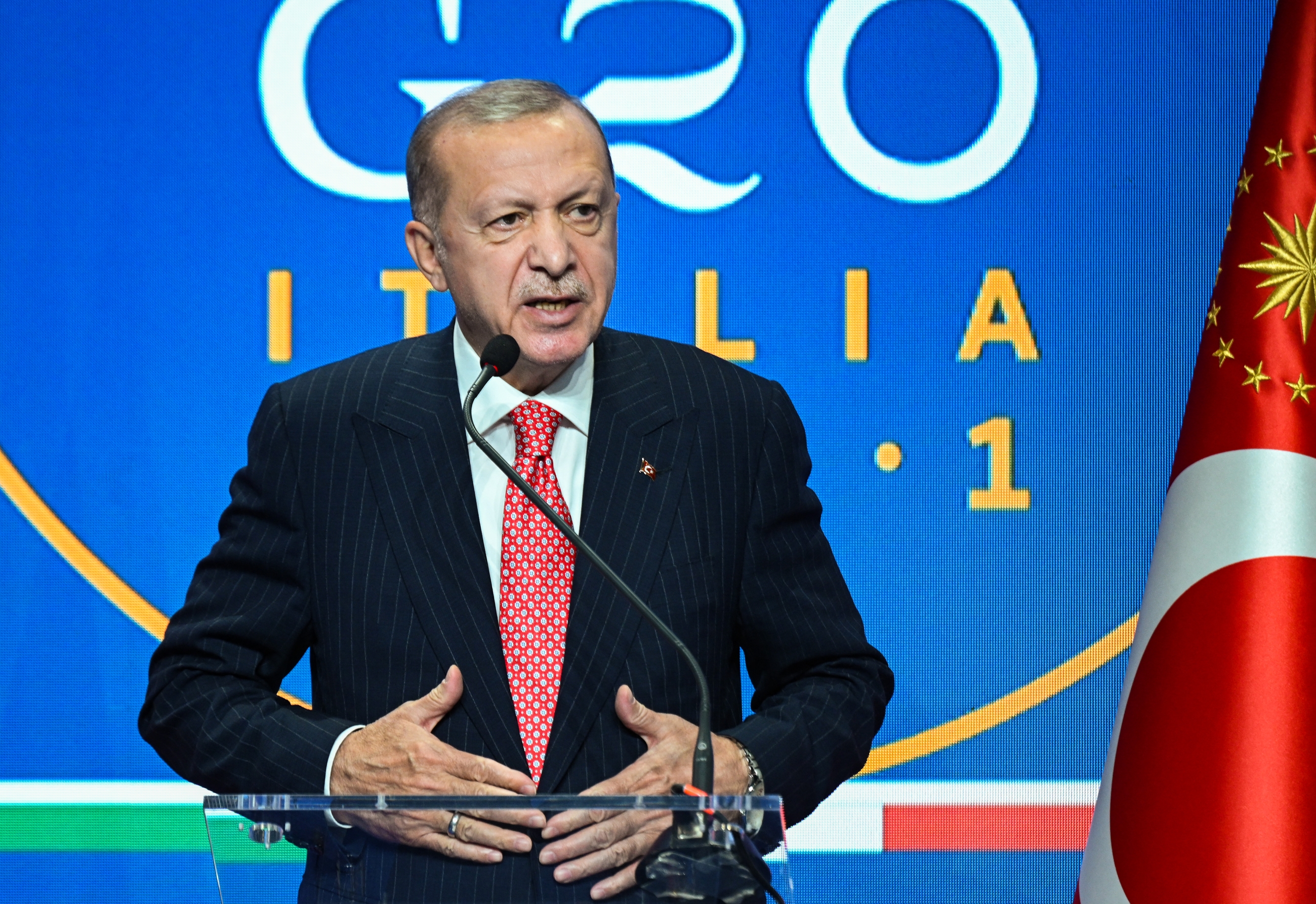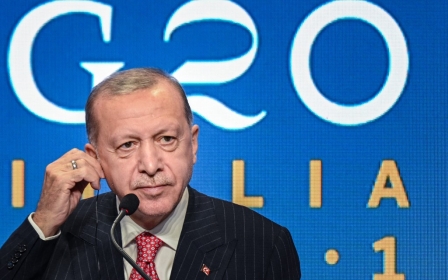Turkey: Probe launched over social media posts speculating on Erdogan's health

Turkish authorities have launched a probe into social media posts speculating about the health of President Recep Tayyip Erdogan after the hashtag #olmus ("he is dead") began trending on Twitter in the country.
In a statement on Wednesday, Turkey's cyber police said it was investigating 30 people who used or retweeted the hashtag.
"As part of virtual patrols, it has been encountered that the #olmus hashtag was launched, alluding to our president, Mr Recep Tayyip Erdogan," the General Directorate of Security said in a statement.
Although there has been much speculation about Erdogan's health over the years, the latest rumours appear to have been sparked off by his failure to attend the 19th anniversary celebrations of his ruling Justice and Development Party (AKP)'s coming to power.
Another hashtag, #olmemis - "He is not dead" - also trended on Wednesday.
In an apparent attempt to cut off speculation, the president's director of communications, Fahrettin Altun, shared a video of Erdogan on Twitter with the message: "Confidence for friends, fear for enemies..."
Health rumours
Rumours about his health have plagued the 67-year old president since 2011, when he underwent keyhole gastrointestinal surgery.
Last month, the leader of the main opposition Republican People's Party (CHP), Kemal Kilicdaroglu, called for a report to be released on the president's health, deeming it a "matter of state security" after claiming that Erdogan mistakenly said that a number of comments made by AKP politicians had been uttered by Kilicdaroglu.
"Erdogan must get a health report from an independent institution, and do it immediately," Kilicdaroglu said on Twitter.
Social media users in Turkey regularly face arrest and censorship over comments critical of Erdogan and the government.
Freedom House's "Freedom on the Net" report for 2021 described Turkey as "not free" in terms of online usage and said that "online activists, journalists, and social media users were harassed both physically and online for their social media posts".
"Criminal cases were carried out against those who posted undesirable commentary on social media, and the threat of online surveillance, harassment and criminal penalties has contributed to the growing practice of self-censorship among internet users in Turkey," read the report.
"The proliferation of restrictive laws has further formalised censorship in the country."
Middle East Eye propose une couverture et une analyse indépendantes et incomparables du Moyen-Orient, de l’Afrique du Nord et d’autres régions du monde. Pour en savoir plus sur la reprise de ce contenu et les frais qui s’appliquent, veuillez remplir ce formulaire [en anglais]. Pour en savoir plus sur MEE, cliquez ici [en anglais].





